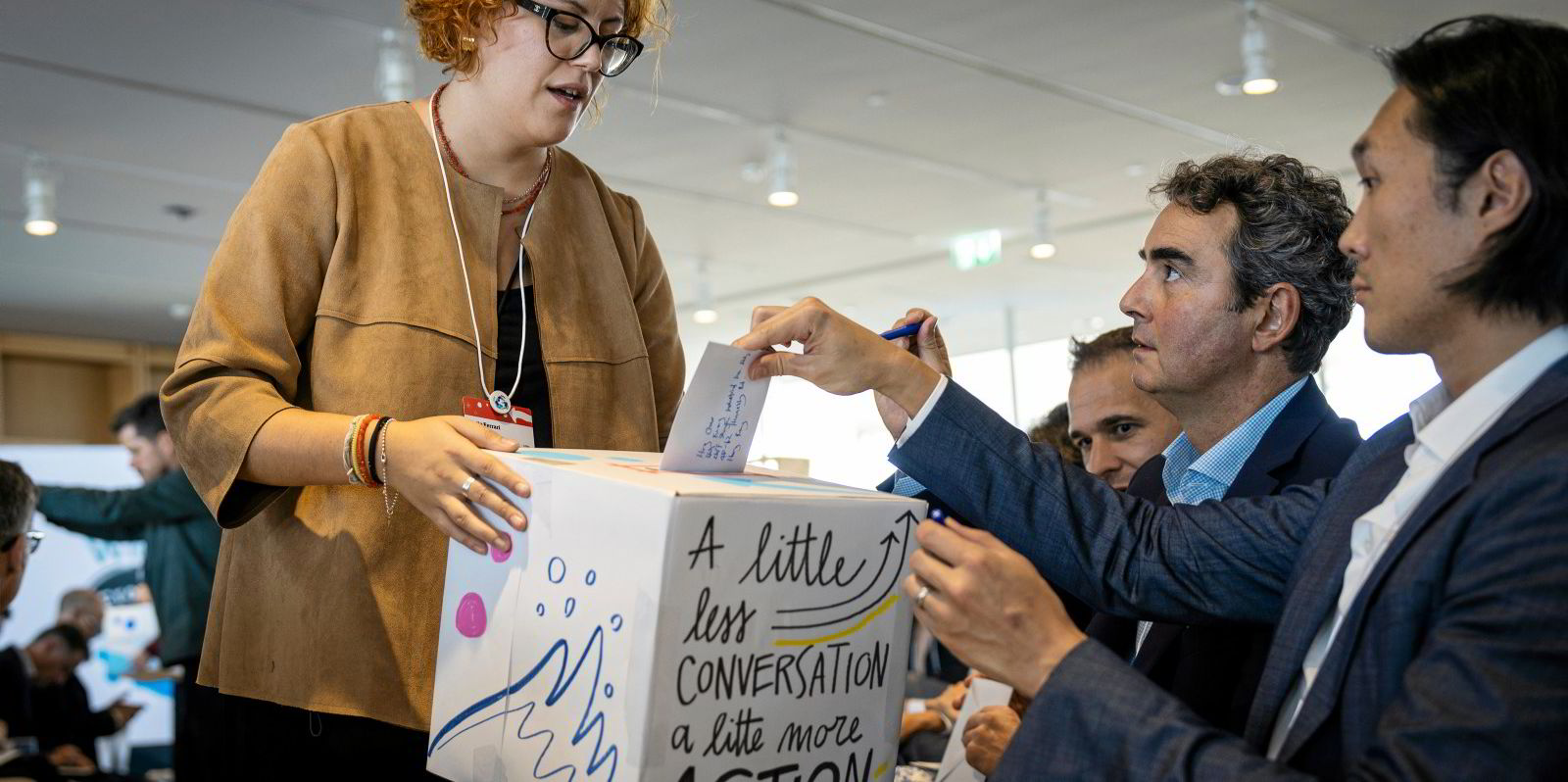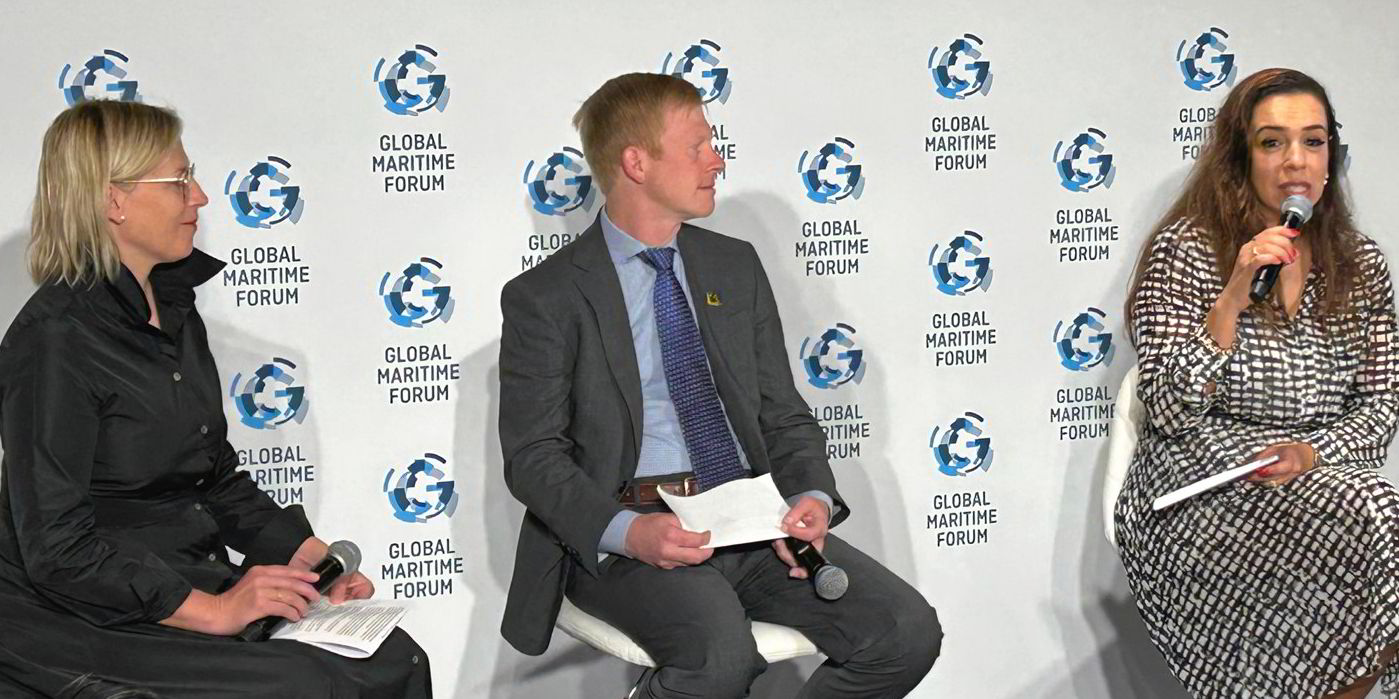Shipping has moved into a new age, an age of accountability. No longer can it trade on the image of being out of sight and out of mind, literally and metaphorically.
Today, society expects shipping to meet the generally held norms and comply with the rules, just like any other industry.
So, how does shipping deal with this end of exceptionalism?
Most importantly, it needs to accept that times have changed.
There was some evidence that this tectonic shift is being understood among the executives and thought leaders who participated in the Global Maritime Forum’s annual summit in Athens last week.
Many of the power brokers present reflected on the implications of the International Maritime Organization’s decision in the summer to align shipping’s decarbonisation targets with the Paris Agreement to attempt to limit climate change to 1.5C degrees.
The unanimous decision of the IMO’s 175 member nations to increase the carbon reduction target from a 50% cut by 2050 to zero emissions around 2050 was nothing if not ambitious. The impact on ship operations over the next two decades will be fundamental, with many issues around fuel use, supply, and cost yet to be resolved.
But the decision marked another chapter in a more fundamental and long-term shift to bring shipping regulation into line with the rest of the world.
Just eight years ago in Paris, the international community allowed shipping and aviation to be outside the main climate change agreement. Judged “hard-to-abate” — and arguably even more challenging to regulate — shipping’s decarbonisation agenda was delegated to the IMO — the same countries, of course, although a different forum and subject to other pressures and influences.
Strategy falls short
The result was the IMO’s initial greenhouse gas strategy, which in 2018 set a decarbonisation target of a 50% reduction by 2050. In retrospect, although it was a start, it showed an astonishing lack of genuine ambition in the face of what is arguably an existential threat to life on this planet.
Now, five years on, the world has drawn a line. Shipping will now be expected to meet the challenge faced by all other industries and cut out its carbon emissions completely.
Yet, this is not just about carbon. You can see the trend in other aspects of the industry’s performance. In the 1970s and 1980s, a string of tanker pollution disasters spawned rules that have driven the virtual eradication of such pollution. In the 1990s, the unexplained losses of bulk carriers and poor treatment of crews were blamed on the failure of flag states and classification societies to hold shipowners adequately to account.
The response saw nations in the East and West take back control of shipping safety by instituting stricter port state control checks.
EU ends exemptions
And just last month, the European Union decided that container shipping lines could no longer have exemption from anti-competition rules for consortia. Not only does that end that specific exemption, but it draws down the curtain on the legacy of the age of shipping line “conferences”, which for a century saw liner groups fix prices and surcharges to the anger of shippers.
A key driver of many of these changes is the transparency now demanded of all companies. On land and at sea, both physical and financial operations can be monitored in real time.
Not only are regulators demanding transparency. Customers, financiers, investors and insurers are all insisting on clarity of data to hold companies accountable. Why? Because they themselves are being held accountable to their stakeholders.
So, how should shipping respond to this shift? Arguably, one of the most powerful forces is to form partnerships and coalitions, to share insight, inspire change, form policy and build new businesses.
BW Group chairman Andreas Sohmen-Pao commended the Global Maritime Forum’s spin-off coalitions — the Poseidon Principles, All Aboard Alliance and Sea Cargo Charter — for adding dynamism to the industry. Driving those coalitions is cross-industry work that breaks out of traditional silos.
Nick Brown of Bureau Veritas told the summit he felt the appetite for the industry to be more accountable. And he suggested with greater visibility, the value of shipping will be more clearly appreciated, and with that, the cost of decarbonisation may be more readily accepted by consumers.
The risk remains that words like coalition and collaboration prompt hard-nosed decision-makers to turn off. Add the word action and perhaps the dynamic changes. One GMF delegate coined the hybrid word “collabor-action”; a ghastly term, perhaps, but one that captures the spirit of the times.





